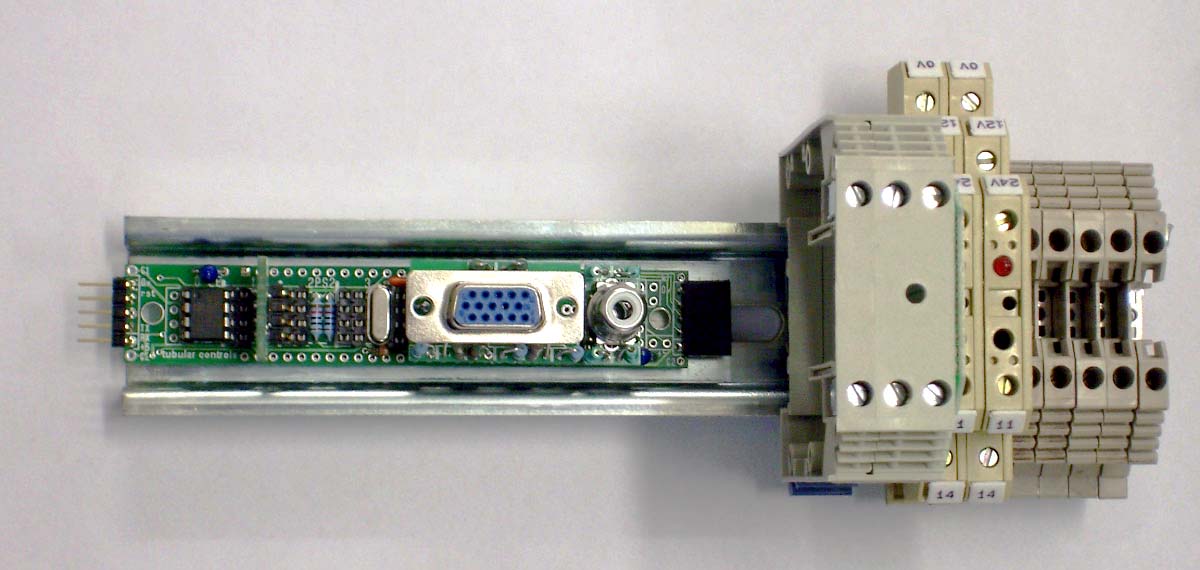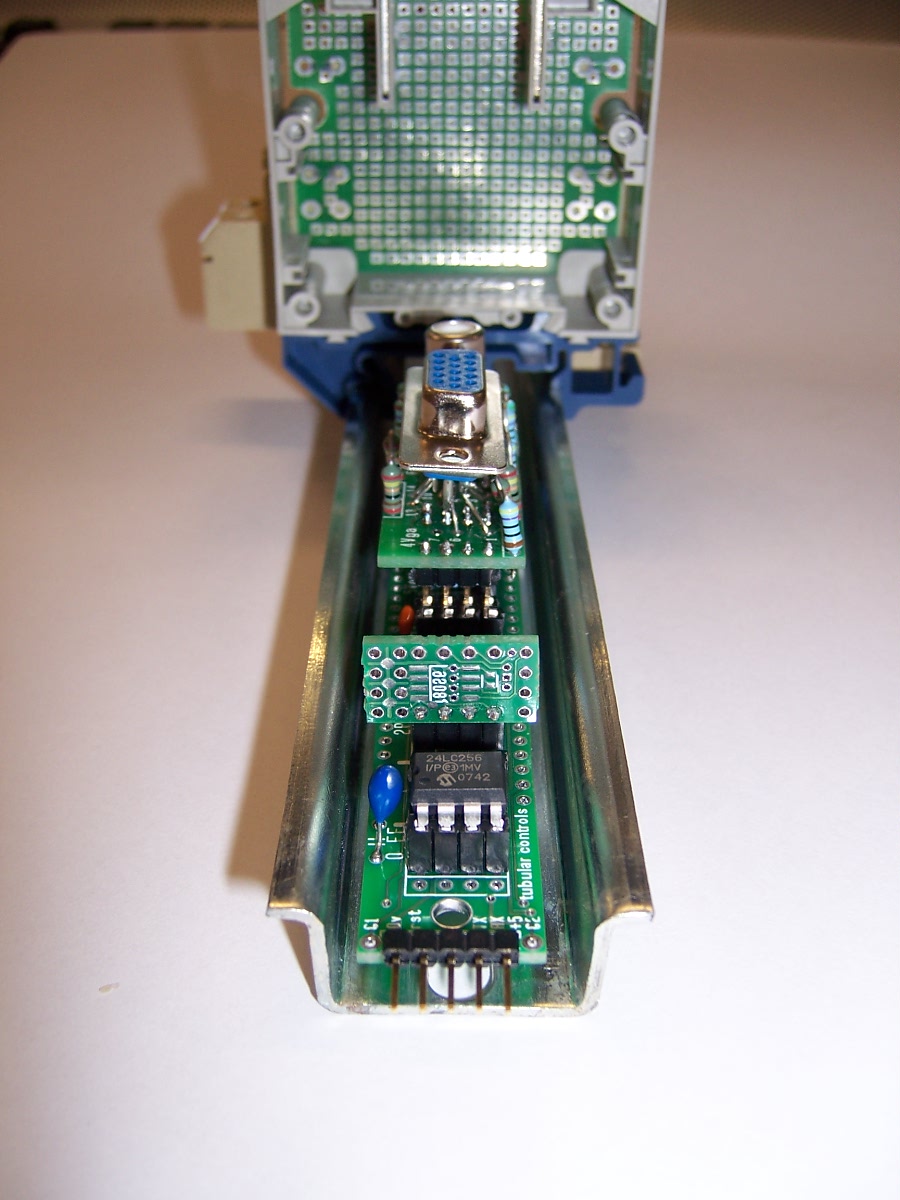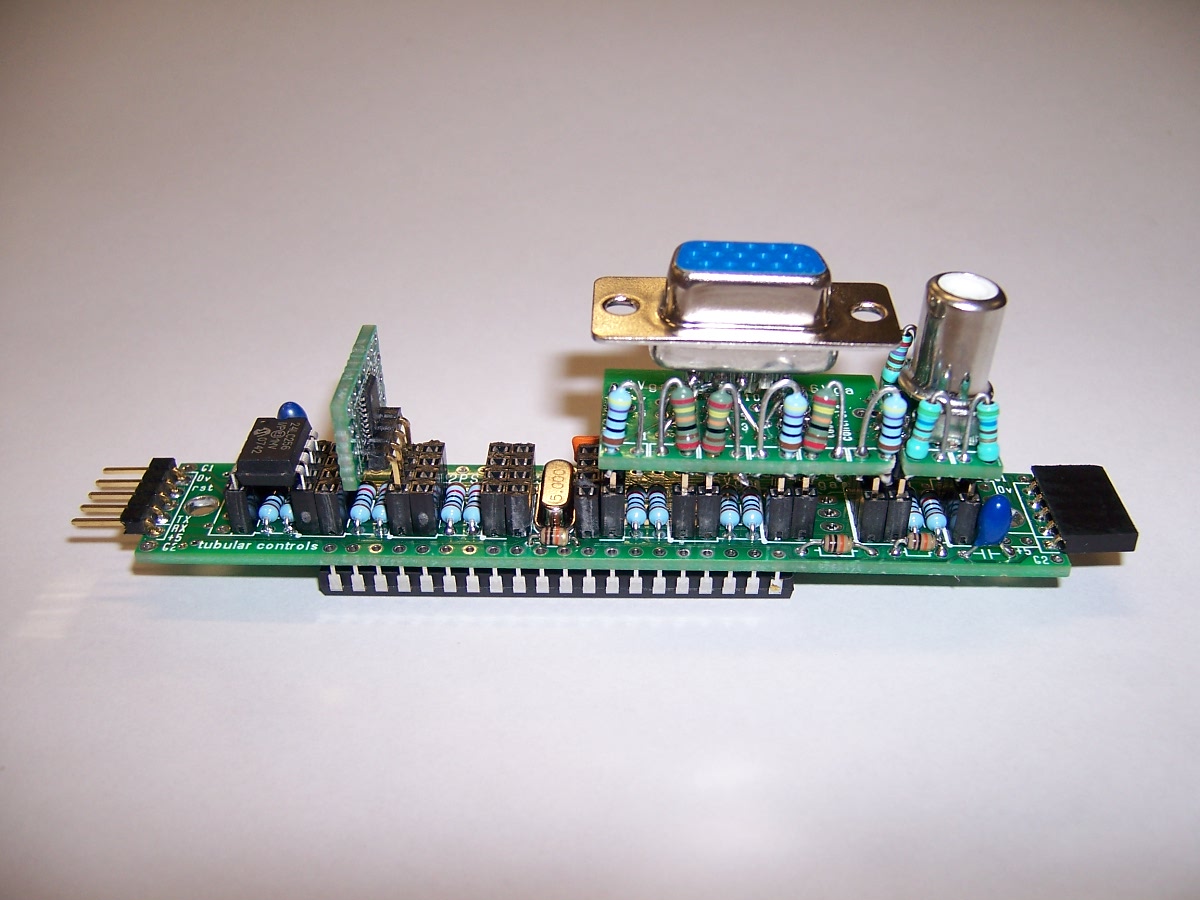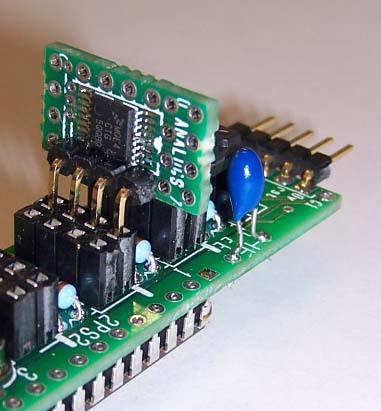DIP8 Explorer / Poor Man's PLC
 Tubular
Posts: 4,771
Tubular
Posts: 4,771
Here's a prop design based on using DIP8 style sockets for the expansion bus. Its compact, cheap and cascadable.
Each slot is connected to the Prop via dedicated 3 wires, notionally SDA, SCL and a multi purpose 'strobe'. There are also 3 global signals to assist for SPI peripherals or for other use.
The following can be plugged in with little or no modification
* Serial EEPROM
* Winbond flash W25X...
* FRAM via adapter
* Serial SRAM via adapter
* "QEPROM" or Quasi Eeprom via adapter, to be detailed later
* Composite Video adapter using 1 slot
* VGA using 3 slots adapter (9 io)
* Vertical orientation cards (especially 1 square inch to take advantage of BatchPcb's minimum)
At first I thought out 0.4" pitch would be too restrictive but its actually not that bad. So I'm pushing ahead with other blocks (PS2, audio, uSD, USB, RS232 etc).
Mounting is flush in a high profile (15mm) DIN rail, allowing it to be hidden under terminals or signal converters. Alternatvely (esp for vertical cards) it can fit in a 40x25 Aluminum C channel with slots to keep the cards vertical.
There is room on the back under slot 6 for a TO220 style reg. I'll also be testing a 24vDC switching reg but this will lift it out of flush.
As always feedback, suggestions appreciated...
tubular
Each slot is connected to the Prop via dedicated 3 wires, notionally SDA, SCL and a multi purpose 'strobe'. There are also 3 global signals to assist for SPI peripherals or for other use.
The following can be plugged in with little or no modification
* Serial EEPROM
* Winbond flash W25X...
* FRAM via adapter
* Serial SRAM via adapter
* "QEPROM" or Quasi Eeprom via adapter, to be detailed later
* Composite Video adapter using 1 slot
* VGA using 3 slots adapter (9 io)
* Vertical orientation cards (especially 1 square inch to take advantage of BatchPcb's minimum)
At first I thought out 0.4" pitch would be too restrictive but its actually not that bad. So I'm pushing ahead with other blocks (PS2, audio, uSD, USB, RS232 etc).
Mounting is flush in a high profile (15mm) DIN rail, allowing it to be hidden under terminals or signal converters. Alternatvely (esp for vertical cards) it can fit in a 40x25 Aluminum C channel with slots to keep the cards vertical.
There is room on the back under slot 6 for a TO220 style reg. I'll also be testing a 24vDC switching reg but this will lift it out of flush.
As always feedback, suggestions appreciated...
tubular







Comments
▔▔▔▔▔▔▔▔▔▔▔▔▔▔▔▔▔▔▔▔▔▔▔▔
Cheers,
Simon
www.norfolkhelicopterclub.com
“Before you criticize someone, you should walk a mile in their shoes. That way when you criticize them, you are a mile away from them and you have their shoes.” - Jack Handey.
Great project.
I had constructed a PLC type for the BS2 some time ago. I never thought to use this idea for the prop.
Small and very clean.
Nice job !
Rob7
As asked above.. how much??
▔▔▔▔▔▔▔▔▔▔▔▔▔▔▔▔▔▔▔▔▔▔▔▔
New ICON coming, gotta wait for the INK to heal, now we have colour!
DIP8 Explorer Base Kit $14
Including PCB, standard plain Dip8 IC sockets, connectors, passives. User adds prop, eeprom, soldering...
Poor Mans PLC Base Module $33
Including low profile header sockets, prop, eeprom, all assembled (as per photos) and tested
(BadHabit there would be a small discount for 100 off, estimate 12%. I'll PM you when I hear back from suppliers)
Re ethernet, yep! Working on an inline input module where the prop plug goes
tubular
Thats really cool, what is the thing on the end in the first pic..and what is the 5pin socket for?
Rick
There are 3 things on the end, from left-right they are a prototyping case from Wieland or Weidmueller, two slimline relays, and standard terminals. I'm working on simple ways to connect these to the underlying Prop base.
The 5 pin connector on the left is for a prop plug, of 4D "CE5" usb plug. The 4D one adds 5 volts to the pin farthest from GND, useful for powering directly from a PC.
The 5 pin socket at right is for direct connection to the next module in the chain, so these modules can be directly cascaded (or via a 5 wire cable. I'm also looking at using a 6 core RJ11 jack so they can be connected via cheap 6 core phone extensions.
tubular